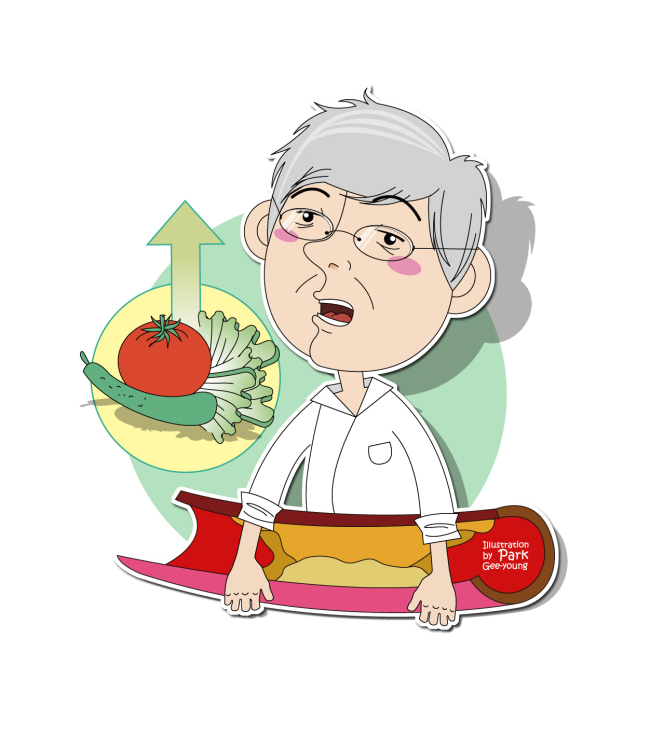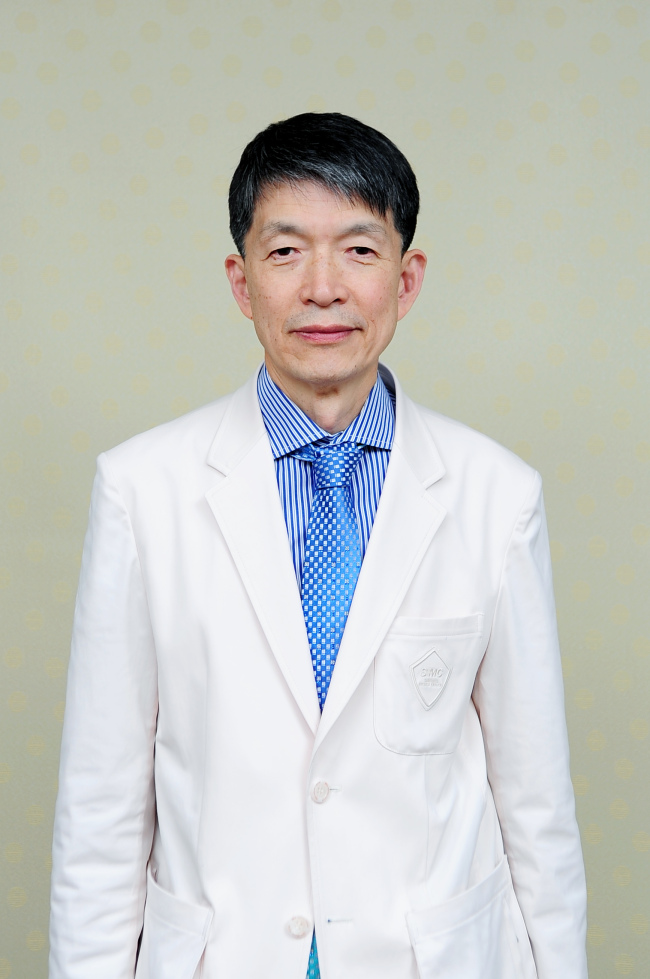
Cholesterol is one of the essential lipids needed to maintain normal body function. It forms the cell membrane, and is needed to produce various hormones such as adrenocortical hormones, as well as male and female hormones.
However, people with higher-than-normal levels of cholesterol (200-240 ml/dl) are at increased risk for angina, myocardial infarction and cerebral ischemia, along with smoking and hypertension, which are the three main risk factors. On the other hand, low levels of cholesterol lead to abnormal hormone production, early aging and cellular dysfunction.
Abnormal levels of cholesterol do not lead to specific symptoms such as dizziness or headache. Some people with extremely high levels of cholesterol can develop yellow masses on the skin due to the deposition of cholesterol.
Not all cholesterol is harmful. There are different types of cholesterol, such as high-density lipoprotein and low-density lipoprotein cholesterol. HDL prevents the accumulation of cholesterol in the blood vessels, acting as “good cholesterol” to remove excess cholesterol from the blood vessels. However, LDL leads to the accumulation of cholesterol in the blood vessels, so it is better to have low levels of LDL. There has been a significant increase recently in the number of people with high cholesterol and heart attacks, and an important reason for this is the Westernization of our diet.
What can be done to reduce cholesterol?
Dietary changes such as avoiding foods with high animal fats while increasing the consumption of proteins from lean meat are important.
Foods such as pork belly, bacon, sausage, liver, heart and other internal organs, as well as squid, octopus, crabs and abalones and other seafood without bones or with hard shells have high cholesterol levels and should be avoided. Egg yolk, fish roe, chocolate, ice cream and cake should also be avoided. It is good to intake unsaturated fatty acids in sesame oil, olive oil, corn oil, fish and cereals, and fiber in seaweed and vegetables.
Exercise is also very important. It helps to do regular cardio exercise such as speed walking, light jogging or mountain climbing. People who are obese or who have knee pain can try swimming or cycling. People with atherosclerosis who want to maintain their current condition must exercise 3-4 hours per week, and 5-6 hours per week to improve the atherosclerosis. People who cannot achieve good improvement without diet and exercise can take medications to improve blood lipid levels in consultation with a doctor.
Foods that have low and high levels of cholesterol
Foods high in saturated fat
● Animal fat (butter, lard)
● Fatty meats (beef ribs, pork ribs, pork belly, sausage, bacon, ham, hot dogs, luncheon meat and minced beef)
● Gom-tang, seolleong-tang, galbi-tang (rib soup), tailbone soup and gravy
● Fried foods or foods made with animal meat (ramen, powdered cream, snacks and Chinese food)
● Milk, cream, ice cream and cheese (cheddar, American, Swiss)
● Cake, cookies, pies, donuts, French fries and Danish pastries
Foods high in cholesterol
● Eggs, quail eggs, duck egg yolk, fish roe (salted pollack roe, roe soup), jeon and mayonnaise
● Intestines (liver, gopchang, tripe, kidneys), salted intestines, salted anchovies, squid, sea shells, oyster, abalone, prawn, eels and loaches
Foods that you should eat frequently
● Lean meat, skinless chicken, fish, tofu, low-fat (1 percent) or nonfat milk, low-fat cheese and low-fat yogurt
● Beans, cereals and breakfast cereals rich in fiber
● Fruits (apples, pears, persimmons, peaches and jujubes)
● Seaweed (laver, seaweed, kelp)
● Vegetables (spinach, chwinamul, beet, curled mallow, radish greens, lettuce and perilla leaves)
● Oils that are rich in unsaturated fatty acids that reduce bad cholesterol levels (perilla oil, pea oil, sesame oil and corn oil)
● Olive oil containing unsaturated fatty acids that increase the levels of good cholesterol
However, people with higher-than-normal levels of cholesterol (200-240 ml/dl) are at increased risk for angina, myocardial infarction and cerebral ischemia, along with smoking and hypertension, which are the three main risk factors. On the other hand, low levels of cholesterol lead to abnormal hormone production, early aging and cellular dysfunction.
Abnormal levels of cholesterol do not lead to specific symptoms such as dizziness or headache. Some people with extremely high levels of cholesterol can develop yellow masses on the skin due to the deposition of cholesterol.
Not all cholesterol is harmful. There are different types of cholesterol, such as high-density lipoprotein and low-density lipoprotein cholesterol. HDL prevents the accumulation of cholesterol in the blood vessels, acting as “good cholesterol” to remove excess cholesterol from the blood vessels. However, LDL leads to the accumulation of cholesterol in the blood vessels, so it is better to have low levels of LDL. There has been a significant increase recently in the number of people with high cholesterol and heart attacks, and an important reason for this is the Westernization of our diet.
What can be done to reduce cholesterol?
Dietary changes such as avoiding foods with high animal fats while increasing the consumption of proteins from lean meat are important.
Foods such as pork belly, bacon, sausage, liver, heart and other internal organs, as well as squid, octopus, crabs and abalones and other seafood without bones or with hard shells have high cholesterol levels and should be avoided. Egg yolk, fish roe, chocolate, ice cream and cake should also be avoided. It is good to intake unsaturated fatty acids in sesame oil, olive oil, corn oil, fish and cereals, and fiber in seaweed and vegetables.
Exercise is also very important. It helps to do regular cardio exercise such as speed walking, light jogging or mountain climbing. People who are obese or who have knee pain can try swimming or cycling. People with atherosclerosis who want to maintain their current condition must exercise 3-4 hours per week, and 5-6 hours per week to improve the atherosclerosis. People who cannot achieve good improvement without diet and exercise can take medications to improve blood lipid levels in consultation with a doctor.
Foods that have low and high levels of cholesterol
Foods high in saturated fat
● Animal fat (butter, lard)
● Fatty meats (beef ribs, pork ribs, pork belly, sausage, bacon, ham, hot dogs, luncheon meat and minced beef)
● Gom-tang, seolleong-tang, galbi-tang (rib soup), tailbone soup and gravy
● Fried foods or foods made with animal meat (ramen, powdered cream, snacks and Chinese food)
● Milk, cream, ice cream and cheese (cheddar, American, Swiss)
● Cake, cookies, pies, donuts, French fries and Danish pastries
Foods high in cholesterol
● Eggs, quail eggs, duck egg yolk, fish roe (salted pollack roe, roe soup), jeon and mayonnaise
● Intestines (liver, gopchang, tripe, kidneys), salted intestines, salted anchovies, squid, sea shells, oyster, abalone, prawn, eels and loaches
Foods that you should eat frequently
● Lean meat, skinless chicken, fish, tofu, low-fat (1 percent) or nonfat milk, low-fat cheese and low-fat yogurt
● Beans, cereals and breakfast cereals rich in fiber
● Fruits (apples, pears, persimmons, peaches and jujubes)
● Seaweed (laver, seaweed, kelp)
● Vegetables (spinach, chwinamul, beet, curled mallow, radish greens, lettuce and perilla leaves)
● Oils that are rich in unsaturated fatty acids that reduce bad cholesterol levels (perilla oil, pea oil, sesame oil and corn oil)
● Olive oil containing unsaturated fatty acids that increase the levels of good cholesterol

By Park Jeong-euy
The author is a doctor in the Division of Cardiology at Samsung Medical Center and a professor at Sungkyunkwan University School of Medicine. ― Ed.
The author is a doctor in the Division of Cardiology at Samsung Medical Center and a professor at Sungkyunkwan University School of Medicine. ― Ed.



![[AtoZ into Korean mind] Humor in Korea: Navigating the line between what's funny and not](http://res.heraldm.com/phpwas/restmb_idxmake.php?idx=644&simg=/content/image/2024/04/22/20240422050642_0.jpg&u=)


![[Exclusive] Korean military set to ban iPhones over 'security' concerns](http://res.heraldm.com/phpwas/restmb_idxmake.php?idx=644&simg=/content/image/2024/04/23/20240423050599_0.jpg&u=20240423183955)
![[Herald Interview] Why Toss invited hackers to penetrate its system](http://res.heraldm.com/phpwas/restmb_idxmake.php?idx=644&simg=/content/image/2024/04/22/20240422050569_0.jpg&u=20240422150649)
![[Graphic News] 77% of young Koreans still financially dependent](http://res.heraldm.com/phpwas/restmb_idxmake.php?idx=644&simg=/content/image/2024/04/22/20240422050762_0.gif&u=)






![[Exclusive] Korean military to ban iPhones over security issues](http://res.heraldm.com/phpwas/restmb_idxmake.php?idx=652&simg=/content/image/2024/04/23/20240423050599_0.jpg&u=20240423183955)



![[Today’s K-pop] Ateez confirms US tour details](http://res.heraldm.com/phpwas/restmb_idxmake.php?idx=642&simg=/content/image/2024/04/23/20240423050700_0.jpg&u=)